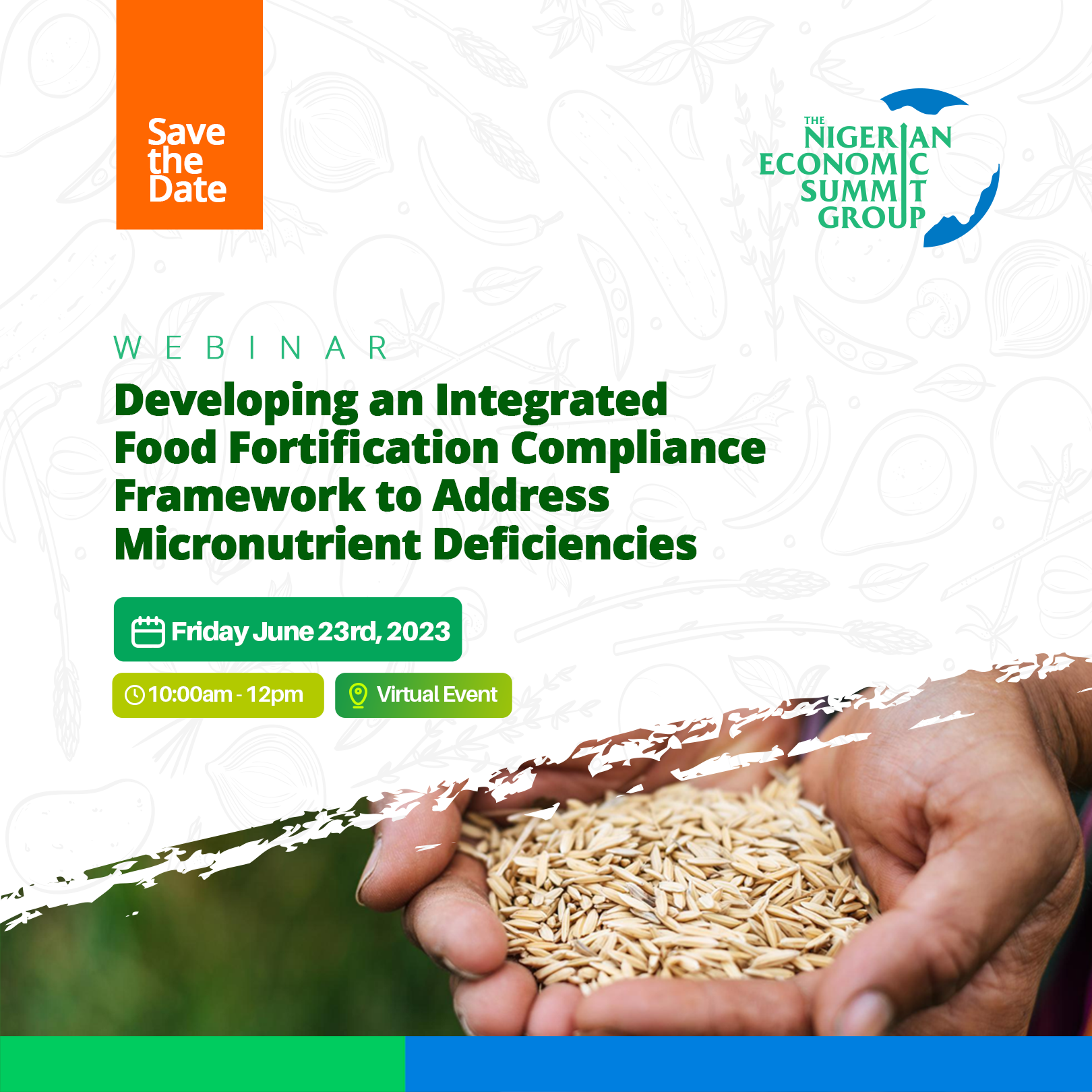Posted Sat, Jun 17, 2023 7:41 PM
Timeframe: Fri, Jun 23, 2023 10:00 AM - Fri, Jun 23, 2023 11:30 AM
Developing an Integrated Food Fortification Compliance Framework to address Micronutrient Deficiencies

Micronutrient deficiencies or a lack of essential vitamins and minerals required in small amounts by the body for proper growth and development can cause several serious health issues. A lack of iron, folate, and vitamins B12 and A can lead to anaemia - a condition in which there is a reduced number of red blood cells or haemoglobin concentration, causing fatigue, weakness, shortness of breath and dizziness. Due to the high economic burden of Vitamins and Mineral Deficiencies (MND) and the relatively low cost of adding vitamins and minerals, economists have concluded that fortification is among the most cost-effective investments in national economic development. Presuming fortification can lower the $1.5 billion in annual losses from MND in Nigeria by 25-50%; this suggests $375-750 million annually in economic returns (Global Hunger Index, World Food Program).
Micronutrient deficiencies have been an enduring problem in Nigeria. Recent data from UNICEF indicates that over 30 per cent of Nigerian Children are Vitamin A deficient, while a report from the Federal Ministry of Health suggests that 70 per cent of children under five in Nigeria are anaemic. In Nigeria and the rest of Sub-Saharan Africa, micronutrient deficiencies are common among the people due to overfarmed, depleted and nutrient-lacking soils, low nitrogen in most African soils, high soil acidity, infestation of crops by pests and diseases, and the adverse effects of climate change. In addition, many people in developing countries lack the means to grow or buy micronutrient-rich foods. Instead, they rely on nutrient-poor staples. Their lack of dietary diversity is exacerbated by poor access to healthcare and a high disease burden.
According to the global hunger index, Hidden hunger, a form of undernutrition that occurs when intake and absorption of vital minerals are too low to sustain good health and development, afflicts more than 2 billion individuals, or one in three people, globally. This shortage in essential vitamins and minerals can have long-term, irreversible health effects, which are particularly acute on child health and survival, especially within the first 1,000 days of a child’s life, from conception to the age of two, resulting in severe physical and cognitive consequences
Food Fortification
Food fortification is the practice of adding vitamins and minerals to commonly consumed foods during processing to increase their nutritional value. It is a proven, safe and cost-effective strategy for improving diets and preventing and controlling micronutrient deficiencies. However, despite the enormous economic potential of food fortification, several barriers work against creating an enabling environment for global food fortification scale-up. These constraints include low private-public partnerships and a need for national regulations on food fortification.
Food fortification is a cost-effective intervention with the potential to address malnutrition globally. Studies on the fortification of foods have shown positive results in controlling and preventing micronutrient deficiencies among vulnerable populations, especially women and children, and in social, economic, and environmental dimensions. The challenges associated with food fortification can be addressed when partnerships are formed that include the public and private sectors as well as other parties that can provide support in critical areas such as advocacy, management, capacity building, implementation and regulatory monitoring.
Find an event
Latest Releases
_1731941578.png)
Leveraging Artificial Intelligen .. Read
4 days ago

Second Consecutive Increase: Hea .. Read
1 day ago

The Dynamics of Access and Influ .. Read
4 days from now
